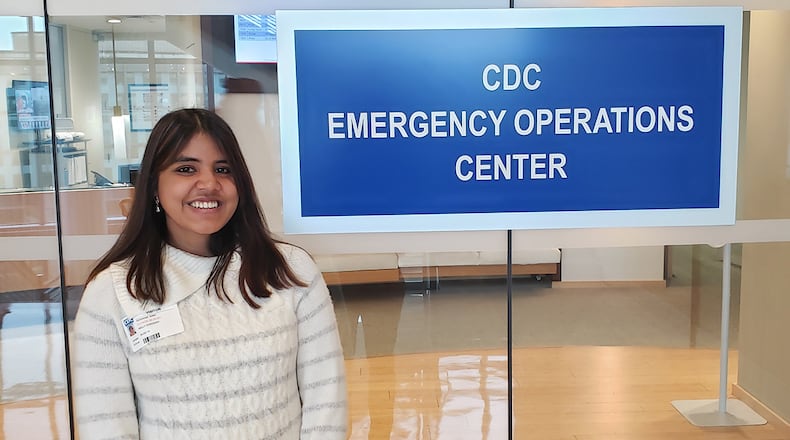Rinki Goswami, of Beavercreek, and Vishal Dasari, of Chennai, India, were both deployed to a CDC Emergency Operations Center, where their efforts help with surveillance, testing, management and prevention of the disease.
Credit: Wright State University
Credit: Wright State University
EOCs are commonly used to help the CDC track the spread of troublesome disease, which in the past has included diseases like the Ebola virus and polio.
“The CDC is working with the international community to contain the coronavirus, as well as state and local officials to monitor people entering the U.S. in 20 different U.S. airports,” Goswami said. “The goal is to minimize the impact of the virus by getting those who may be infected tested quickly.”
>>Coronavirus: 3-week break announced for Ohio schools; events with 100+ people banned
Goswami and Dasari are aiding the CDC as part of the Epidemiology Elective Program, which offers students eight-week rotations working at the CDC headquarters in Atlanta to gain hands-on experience with public health.
Both are halfway through their rotation, Goswami in the Division of Blood Disorders and Dasari with the One Health Office in the Office of the Director at the National Center for Emerging Zoonotic Infectious Diseases.
>>Atlantic 10 among conferences to cancel basketball tournaments
Both said that they were considering working in public health in the future, possibly for the CDC.
“It’s exciting to be a part of the national coordination effort, and I’m learning a lot about managing high-volume, high-priority emergencies logistically,” Dasari said.
“Our medical training gives us great experience on how to handle the patient in front of us at the bedside, but this rotation at the CDC lets us see how our knowledge and expertise can save or affect the lives of thousands of people at once,” Goswami said.
About the Author

